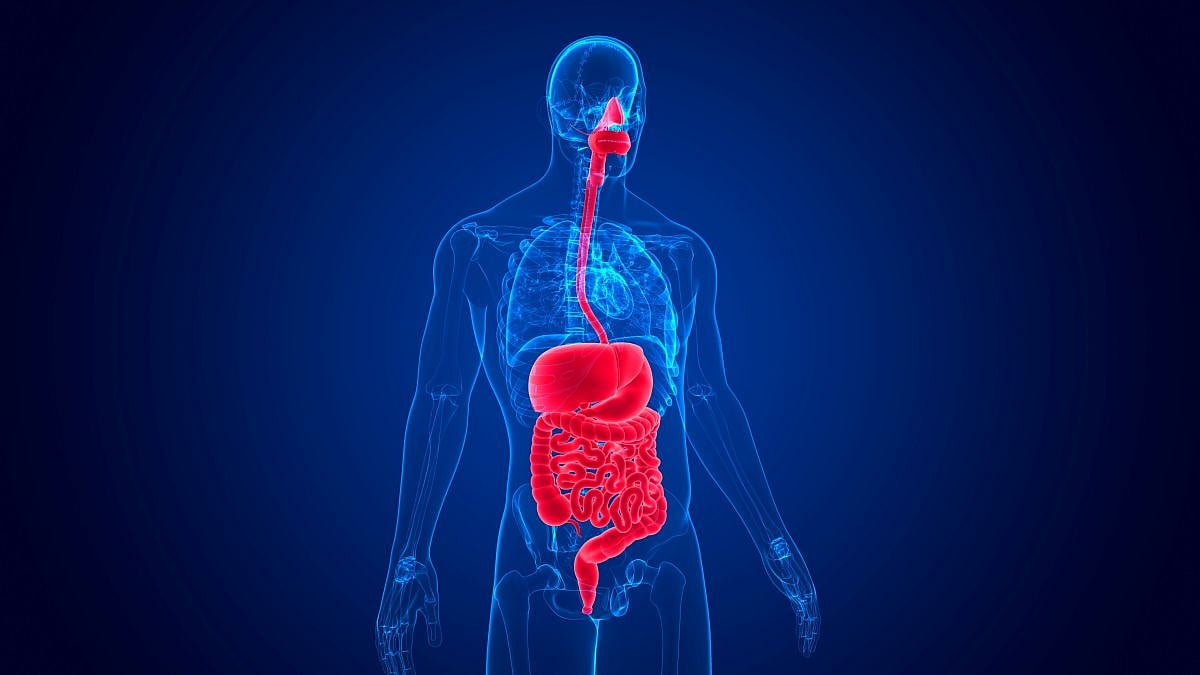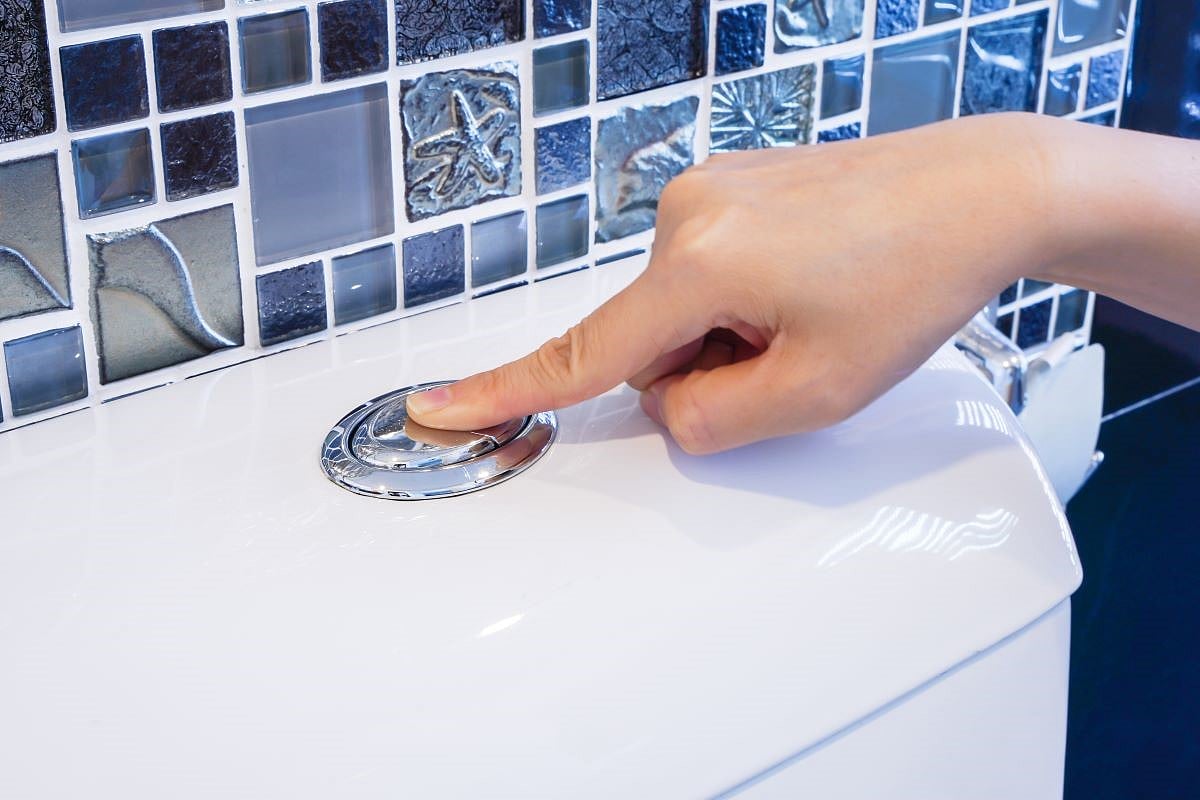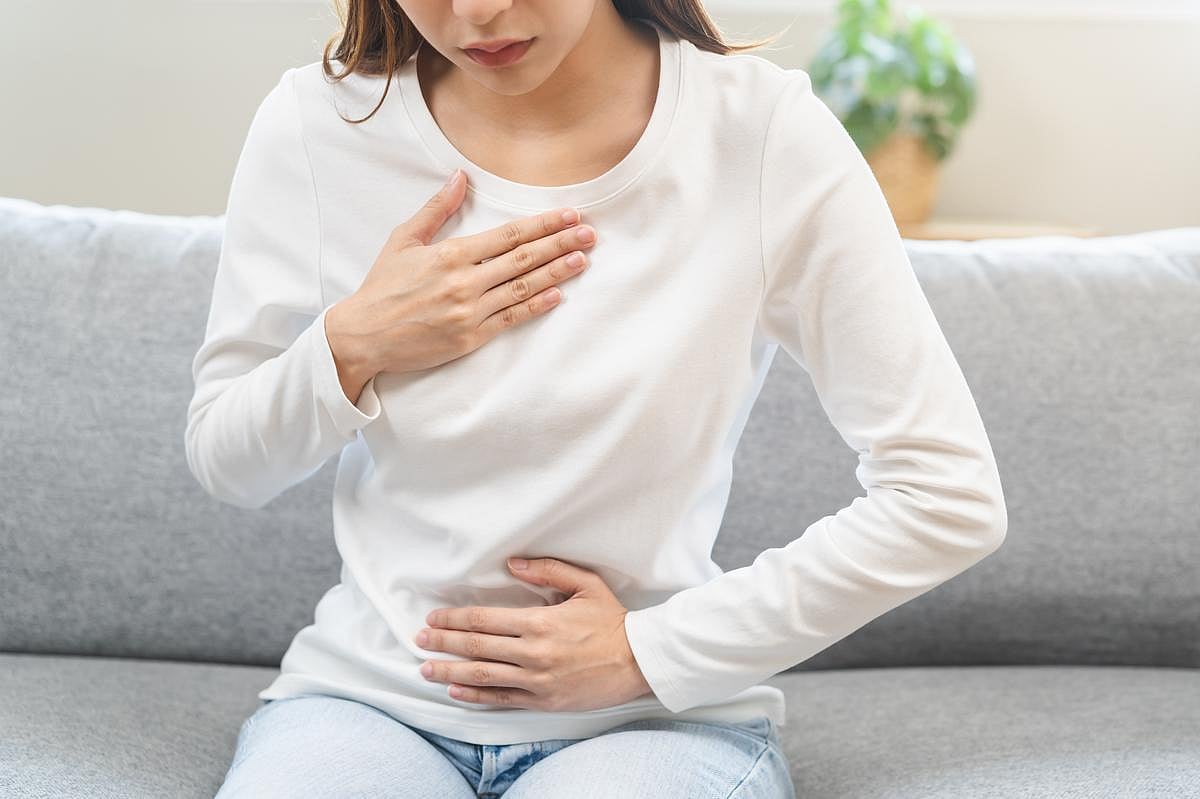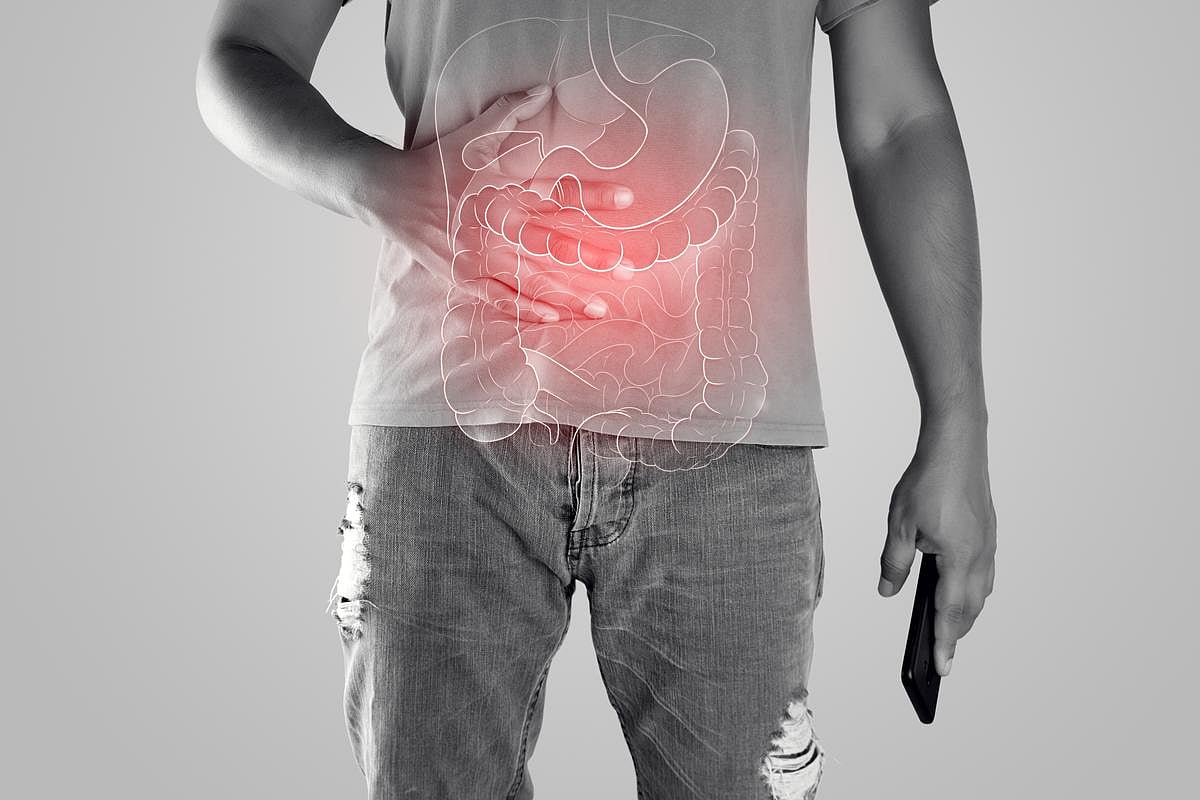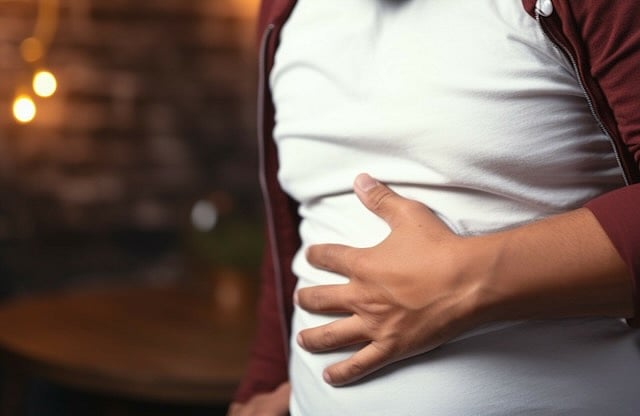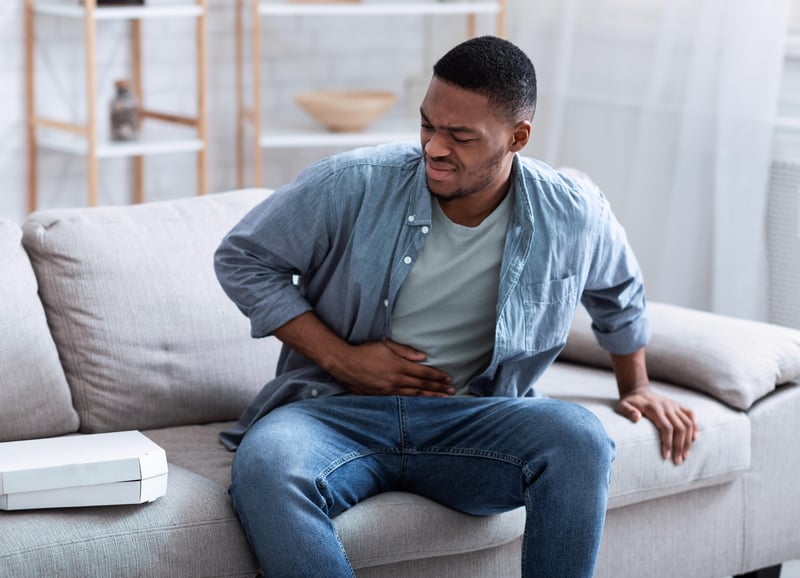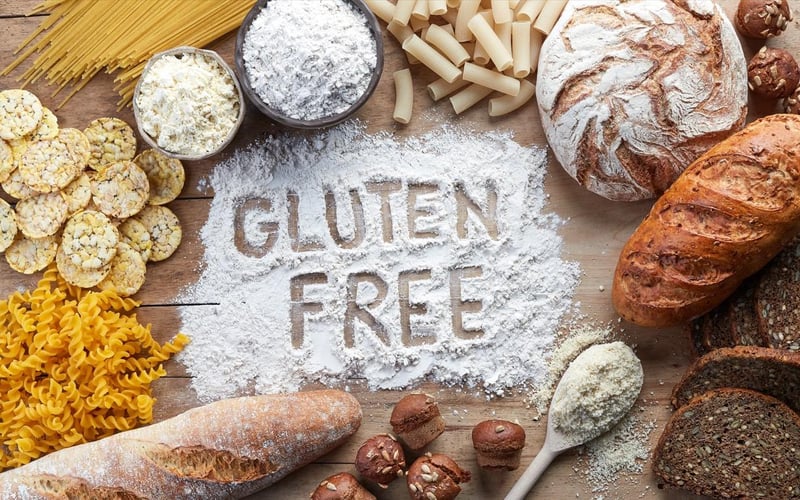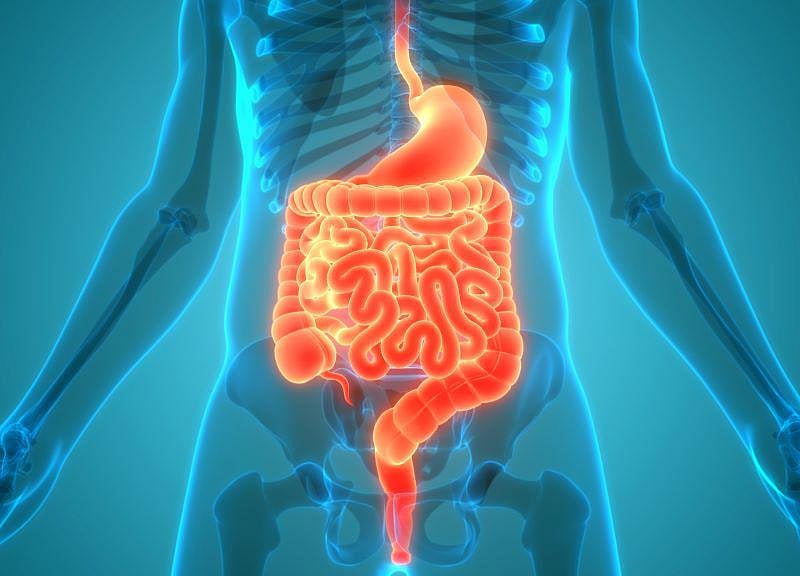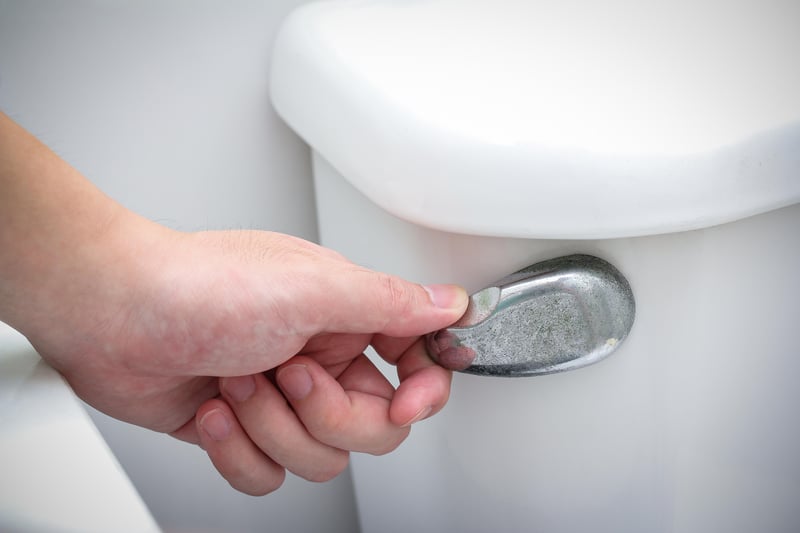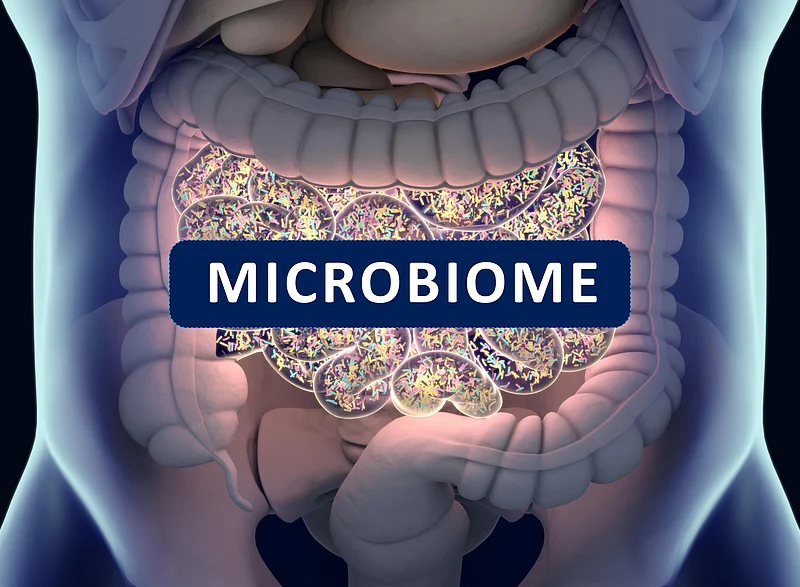Get Healthy!
Results for search "Digestion".
28 Oct
Mediterranean Diet Reduces IBS Pain and Other Severe Symptoms
In a new study, people with irritable bowel syndrome who followed a Mediterranean diet for 6 weeks experienced significant relief from abdominal pain and other severe symptoms.
Health News Results - 32
Pesticides used on commercial farms, and even your backyard flower bed, could be harming the healthy bacteria that live in your gut, new research suggests.
And it’s not only pesticides: British researchers found that other chemicals ubiquitous in modern homes — flame retardants and plastics compounds — may also be toxic to your “microbiome,” the trillio...
- Ernie Mundell HealthDay Reporter
- |
- November 26, 2025
- |
- Full Page
The human body is packed with natural rhythms, from your sleep-wake cycle to the steady pulsing of blood through the brain to heart rate and pulse.
Now, scientists say the gut may hold the key to understanding how this complex coordination happens in the brain’s blood vessels.
Researchers at the University of California San Diego have discovered that the gut’s rhyt...
- I. Edwards HealthDay Reporter
- |
- November 2, 2025
- |
- Full Page
Kiwis may be more than a healthy snack — they could also help get your digestive system moving.
New evidence-based dietary guidelines from the British Dietetic Association say kiwis, rye bread and certain supplements may help people ma...
- I. Edwards HealthDay Reporter
- |
- October 16, 2025
- |
- Full Page
When a child struggles with constipation, it can be a source of frustration and discomfort for the whole family. But a leading pediatric expert offers a clear guide to understanding and treating this common issue.
According to Dr. Jaya Punati, a neurogastroenterologist and co-director of the Colorectal and Pelvic Anomalies Program ...
- Deanna Neff HealthDay Reporter
- |
- September 21, 2025
- |
- Full Page
A small scoop of sauerkraut every day may do more than add crunch to your meal.
It could also protect your gut.
In a new study from the University of California- Davis, researchers found that fermented cabbage, also known as sauerkraut, may help support the gut lining and reduce inflammation in the body.
"A little bit of sauerkraut could go a long way," lead author
Artificial intelligence (AI) may be guiding doctors towards a gut-focused means of accurately diagnosing chronic fatigue syndrome (CFS), new research shows.
The illness appears to disrupt relationships between a person’s gut microbiome, immune system and metabolism, explained a team led by Julia Oh. She’s a microbio...
- HealthDay Reporter
- Ernie Mundell
- |
- July 29, 2025
- |
- Full Page
Pepto Bismol is a go-to stomach remedy, but a new study suggests it might not help prevent diarrhea during international travel.
The study, led by the U.S. Centers for Disease Control and Prevention (CDC), found that people who took bismuth subsalicylate — the active ingredient in
Patients with diverticulitis often try to control the digestive condition by cutting nuts, seeds and popcorn out of their daily diet.
But that’s not necessary, a new study has found.
Nuts and seeds do not increase the risk of diverticulitis, according to findings published May 5 in the Annals of Internal Med...
- HealthDay Reporter
- Dennis Thompson
- |
- May 6, 2025
- |
- Full Page
Nearly 50 million Americans live in counties with no local gastroenterologist.
Gastroenterologists diagnose and treat disorders affecting the GI tract -- from gallstones and gastric reflux to colon cancer. A team led by Dr. Xiaohan Ying of Weill Cornell Medicine in New York City analyzed federal data to determine where gast...
- HealthDay Reporter
- Randy Dotinga
- |
- February 17, 2025
- |
- Full Page
You've loaded up on goodies while at a family gathering, and you suddenly feel chest pains. Is it heartburn or something worse?
Being able to tell the difference between indigestion and cardiovascular trouble might save your life, said Dr. Maya Balakrishnan, an associate professor of gastroenterology at Bay...
- HealthDay Reporter
- Robin Foster
- |
- November 17, 2024
- |
- Full Page
As the holidays approach, most folks are familiar with a common side effect of the overindulgence that can come with all those meals with family and friends: Bloating.
Luckily, Baylor College of Medicine gastroenterologist Dr. David Szafron has some tips on what triggers bloating, what kinds of foods are big triggers for ...
- HealthDay Reporter
- Robin Foster
- |
- November 16, 2024
- |
- Full Page
Beans may sometimes give you gas, but one expert says that shouldn't stop you from finding ways to include them in your diet.
Why? Because they are packed with nutrients that contribute to good health.
“Beans are in a unique category because they are a protein source, but they are also complex carbohydrates,” said
An overgrowth of gut microorganisms that produce methane could be a cause of severe constipation in many people, a new review finds.
These gut bugs belong to a class of microbe called archaea, and when they flourish too well in a person’s gut they cause a condition called intes...
- HealthDay Reporter
- Dennis Thompson
- |
- September 4, 2024
- |
- Full Page
It's a little known health condition that can become a nightmare: Regular and sudden episodes of intense nausea and vomiting.
Now, new clinical guidance urges people to take notes and speak...
- HealthDay Reporter
- Dennis Thompson
- |
- July 17, 2024
- |
- Full Page
The long-standing advice is that everyone should get more fiber in their diet, but a new study suggests some benefit more than others.
A person's gut microbiome appears to have some influence over the benefits a person derives from dietary fiber, researchers report in the journal Gut Microbes.
Evidence ...
- HealthDay Reporter
- Dennis Thompson
- |
- June 27, 2024
- |
- Full Page
New, real-world research confirms that the blockbuster weight-loss drugs that millions of Americans have been taking to shed pounds can trigger stomach paralysis in some patients.
"Although these drugs do work and should be used for the right reason, we just want to caution everyone that if you do decide to start this, be prepared that you have a 30 percent chance that you may have GI sid...
- HealthDay Reporter
- Robin Foster
- |
- May 20, 2024
- |
- Full Page
Even a slight rise in a specific type of beneficial gut bacteria can help people ward off serious infections, a new study reports.
For every 10% increase in butyrate-producing bacteria in a patient's gut, their risk of hospitalization for infection drops between 14% and 25%, researchers are scheduled to report at a major European medical meeting next month.
Butyrate is a fatty acid ...
- HealthDay Reporter
- Dennis Thompson
- |
- March 25, 2024
- |
- Full Page
It was the ancient Greeks who first divided the 20-foot length of the small intestine into three parts: The duodenum, the jejunum and the ileum.
However, the organ may finally be ready for an update: U.S. researchers say the small intestine is actually comprised of five distinct segments, each being responsible for the absorption of various nutrients.
"We're excited because this gro...
- HealthDay Reporter
- Ernie Mundell
- |
- February 8, 2024
- |
- Full Page
You're feeling bloated, nauseous and in pain. What is wrong?
It may be gastritis, an inflammation of the stomach lining that can come on suddenly or gradually. It can also lead to other problems, according to the Cleveland Clinic. Here, experts explore gastritis, its caus...
- HealthDay Reporter
- Miriam Jones Bradley, RN
- |
- June 19, 2023
- |
- Full Page
Kids get a lot of tummy aches.
How a parent responds to it can vary, just as the causes can, according to the University of Michigan Health's C.S. Mott Children's Hospital National Poll on Children's Health, which looked more closely at the issue.
About 1 in 6 parents said their child has tummy pain at least monthly, according to the poll, but many don't call the doctor. One-third...
- HealthDay Reporter
- Cara Murez
- |
- June 19, 2023
- |
- Full Page
Crohn's disease can turn your life into a gastrointestinal nightmare, but there is hope.
According to the National Institute of Diabetes and Digestive and Kidney Diseases (NIDDK), more than half a million Americans have Crohn's diseas...
- HealthDay Reporter
- Kirstie Ganobsik
- |
- June 15, 2023
- |
- Full Page
Celiac disease is a chronic disease that can't be cured, but treatment can help with symptoms.
This guide will break down what you need to know about celiac disease, including its causes and symptoms, along with self-care and treatment. You'll also learn more about the celiac disease diet, especially foods to eat and those to avoid.
What is celiac disease?
Cel...
- HealthDay Reporter
- Sue Benzuly, RN
- |
- June 14, 2023
- |
- Full Page
Indigestion, or dyspepsia, is a common ailment that can bring about a range of uncomfortable symptoms, leaving one feeling full and experiencing stomach pain.
It's a condition that affects many individuals and can significantly impact their quality of life. In this article, experts delve into the intricacies of indigestion, exploring its causes, symptoms and treatment options.
Addit...
- HealthDay Reporter
- Ann Schreiber
- |
- June 13, 2023
- |
- Full Page
People who suffer from irritable bowel syndrome (IBS) know it is a highly unpleasant chronic condition that can trigger abdominal pain, diarrhea and constipation.
Here, experts will unravel the mysteries of IBS, exploring its causes, symptoms and treatments. And of course, don't forget about the role of diet. Experts will break down the best foods to eat and those to avoid for a happy gut...
- HealthDay Reporter
- Ann Schreiber
- |
- June 7, 2023
- |
- Full Page
Half of the cells in your body aren't human -- and a new study suggests that many critical to your health oscillate by the hour, day and even the season.
The human body contains about 40 trillion bacteria, viruses and fungi, creating a microbiome that roughly matches the number of human cells one-to-one, said researcher
- HealthDay Reporter
- Dennis Thompson
- |
- April 28, 2023
- |
- Full Page
People are often reminded that they are their own unique person -- and a new study says that's particularly true of the digestive tract.
Dissections of a few dozen deceased individuals revealed striking differences in gastrointestinal anatomy, even among a small group of people.
Some livers were larger, some intestines and colons were longer. Crucial discrepancies were observed betw...
- HealthDay Reporter
- Dennis Thompson
- |
- April 24, 2023
- |
- Full Page
If you've ever thought you must absorb more calories from food than other people do, you might be onto something: A new study hints that some people's gut bacteria extract more energy, as in calories, from food -- possibly contributing to weight gain.
The study, of 85 overweight adults, found that those with a particular gut bacteria profile -- dubbed the "B-type" -- had less energy densi...
- HealthDay Reporter
- Amy Norton
- |
- January 3, 2023
- |
- Full Page
A small toilet-based sound sensor that can tell the difference between peeing, pooping and diarrhea may one day help prevent cholera outbreaks.
"The hope is that this sensor, which is small in footprint and noninvasive in approach, could be deployed to areas where cholera outbreaks are a persistent risk," said researcher
- HealthDay Reporter
- Cara Murez
- |
- December 6, 2022
- |
- Full Page
Banking samples of your own poop in your youth and then transplanting them back when you're old might be a key to healthy aging, scientists suggest.
Stool samples frozen and stored when a person is vital and healthy could potentially rejuvenate bacteria in the gut that's become damaged due to aging, disease or antibiotic use, according to an opinion piece published June 30 in the journal ...
- HealthDay Reporter
- Dennis Thompson
- |
- June 30, 2022
- |
- Full Page
A diagnosis of pancreatic cancer may feel like a death sentence because this fast-moving disease is often discovered at a later stage, when it's harder to treat.
Now, a new study offers hope for earlier diagnosis, finding an association between recent
German shepherds are one of the most noble dog breeds on the planet, but they can fall prey to an often deadly swallowing disorder.
Now, researchers report they have not only identified a gene variant that explains this susceptibility, but they have also designed a test to spot the disease --
When a woman's periods begin to slow down and finally stop, digestive problems often pick up -- and new research suggests race and ethnicity play a role.
With menopause, levels of estrogen decrease, while cortisol levels increase, triggering an adrenaline boost that changes digestive function. It can set off symptoms such as bloating, nausea, diarrhea, constipation, abdominal pain, indige...
- HealthDay Reporter
- Robert Preidt
- |
- December 8, 2021
- |
- Full Page

.jpeg?w=1920&h=1080&mode=crop&crop=focalpoint)
